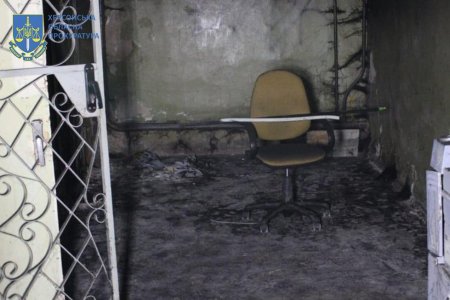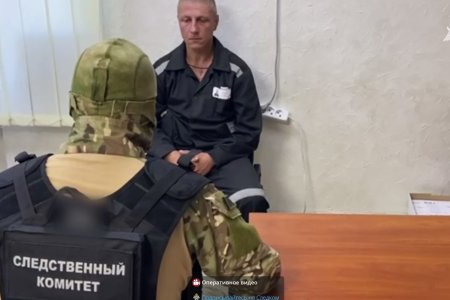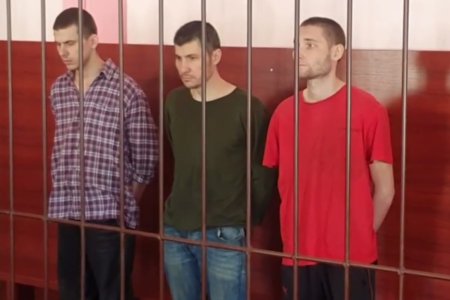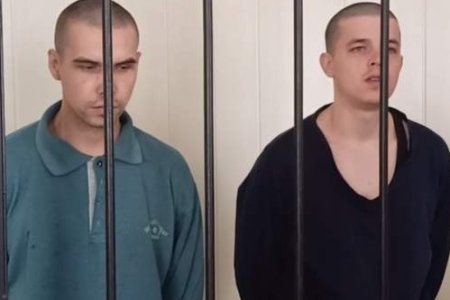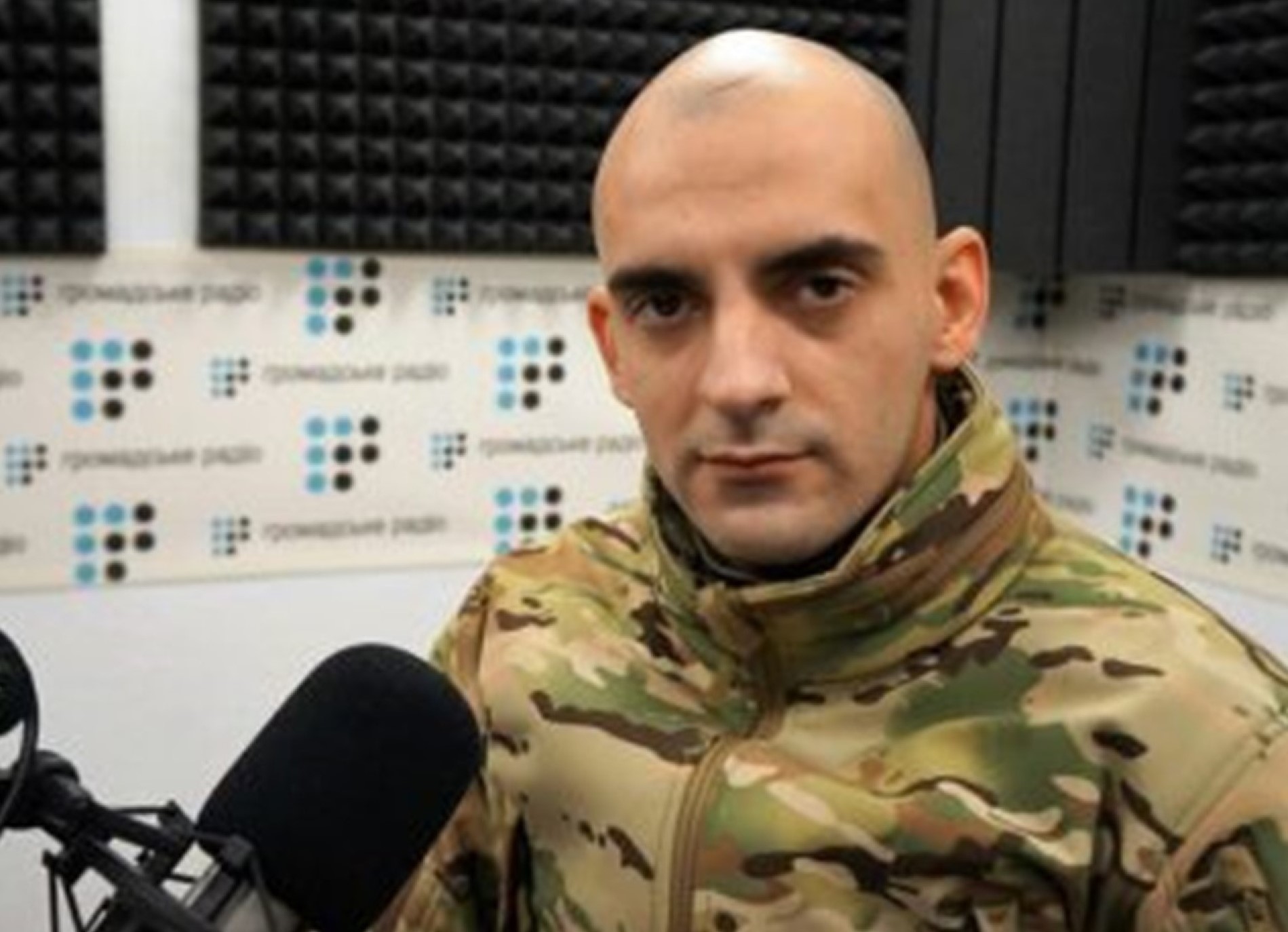
Ukrainian Azov Regiment defender Yevhen Chudnetsov [‘Chudik’] was twice a prisoner of war and experienced at first hand the savage treatment that Russians mete out to Ukrainian defenders. His testimony is also vital as he was near the scene of Russia’s likely deliberate killing of over 50 Ukrainian prisoners of war [POW] at the notorious Olenivka camp in occupied Donbas.
33-year-old Chudnetsov is himself from Makiivka, near Donetsk, and volunteered in October 2014 for what was initially the volunteer Azov Battalion, but then became a regiment within Ukraine’s Armed Forces.
As reported, he was first was taken prisoner in February 2015 and spent almost three years in captivity, before being released in the prisoner exchange on 27 December 2017. Russia was then hiding behind its proxy ‘Donetsk people’s republic’ [‘DPR’], however Chudnetsov has made it clear that that it was not only these local proxies who were behind the seizure, torture and illegal ‘trial’ of Ukrainian prisoner of war like him.
Soon after his capture, a video was widely shown on Russian state propaganda channels. Chudnetsov had obviously been badly beaten and was missing about half of his teeth. Despite his appearance clearly pointing to torture, the video claimed that Chudnetsov had surrendered and then showed him, supposedly ‘voluntarily’ providing ‘information’ about foreigners supposedly instructing Azov defenders or fighting as mercenaries, and the foreign weapons purportedly used.
On 19 May 2016, the ‘DPR press agency’ reported that Chudnetsov had been “sentenced to 30 years”. The Ukrainian soldier, defending Ukrainian territory against a Russian-controlled, armed and funded illegal armed organization was accused of “an attempt to violently seize power on the republic’s territory”.
Ironically, it was the pretence around the so-called ‘republic’ and its fake ‘laws and courts’ that meant that Chudnetsov was ‘only’ tortured during the first three weeks after his seizure. From then on, he was treated as a convicted prisoner, and even had the ‘right’ to visits, parcels, etc.
Throughout this period of time, Chudnetsov was on Ukraine’s list of POWs and hostages, however Moscow, which undoubtedly controlled such decisions, kept blocking exchanges. He was finally freed in the December 2017 exchange and almost immediately rejoined Azov, although served among the forces who defended Mariupol after Russia began its full-scale invasion in late February as a military paramedic.
Chudnetsov was among the defenders who were taken prisoner in May 2022 from the Azovstal Steel Works in Mariupol. He was taken by the Russians, first to the Olenivka ‘concentration camp’, as it is called by former inmates, and then to the Tagenrog SIZO [remand prison] in Russia. He spent almost a year in Russian captivity that time, before being released as part of an exchange on 5 May 2023. He returned soon after to his unit, saying that, for him, serving in the Armed Forces is the best form of rehabilitation after imprisonment.
It was when asked, as he invariably is, whether there was a difference between the way he was treated during his first imprisonment, and the second, that Chudnetsov pointed to the above-mentioned ‘DPR’ imitation of legality. He was, nonetheless, tortured during the first weeks of captivity in 2015, when they pulled teeth out with pliers, unlike the torture in 2022, when they just knocked teeth out.
The second imprisonment was, however, worse, and months after being released he reported that the injuries and broken limbs from the torture he endured had still not healed and that he had lost sensitivity in parts of his body as a consequence. Some of the scars on his hands and feet, he explained to Hromadske Radio were from when he was held suspended in handcuffs. Like all other prisoners of war who have returned home in exchanges of prisoners, he lost a huge amount of weight (around 25 kilos) in Russian captivity, with it difficult to call what they receive food. This, it is worth noting, is in marked contrast to the treatment that Russian POWs receive in Ukraine, as recently confirmed by the UN Rapporteur on Torture, Dr Alice Edwards.
Chudnetsov explains that the treatment meted out to Azov defenders was “three times worse” than that to other POWs, and that Azov medics are treated even more savagely than that. This, he assumes, is due to the huge propaganda effort, with the Russian media talking about Azov around 60% of the time. “They themselves make up some kind of stories and then later believe in them.”
The fatal explosion at the Olenivka camp on 29 July 2022
Chudnetsov says he was a witness to what he is clear was a terrorist act by Russia. He was in the next building, but heard and saw the resulting conflagration after the explosion (seemingly one massive explosive, and then a second). He explains that the Russians had positioned multiple rocket launchers as close as possible to the Olenivka camp, in the knowledge that they could fire from there without fear of return fire as the Ukrainian Armed Forces knew that they were holding Ukrainian POWs there. The explosion was so powerful that, despite the distance, debris reached their barracks, and he is convinced that there was some kind of thermobaric explosive device inside.
Chudnetsov notes that the guards showed no surprise and believes they knew in advance that this was going to happen. Medics pleaded to let them through so that they could at least try to save people, but it was an hour or hour and a half before they allowed any medical personnel in and ambulances arrived only towards morning, when it was already too late to save lives. “This was an absolute show execution. I don’t know why, maybe to show that they can do this.”
Chudnetsov is not alone in believing that the Ukrainian POWs were deliberately killed. On 29 July, Russia immediately claimed that the explosion had been caused by an American HIMARS-launched Ukrainian missile. Moscow even tried to give credibility to such an assertion by imitating willingness to allow the United Nations and International Committee of the Red Cross [ICRC] to come and investigate. This was a typical ploy, enabling good initial headlines, and nothing more. No access has ever been provided, as noted and condemned by the UN High Commissioner for Human Rights Volker Türk on 25 July 2023. In his statement, the High Commissioner pointed out that Russia’s obstruction had not succeeded in fully blocking an investigation. As the result of a number of interviews with former prisoners at Olenivka and other detailed analysis, they were certain that the explosion had not been caused by a HIMARS rocket. Russia has not carried out an official and thorough investigation, as is demanded by international law. Instead, as with crimes committed on other territory currently under its occupation, it has actively obstructed such probes. This alone would demonstrate that it has a great deal to hide, but the testimony of people like Yevhen Chudnetsov provides further evidence.
